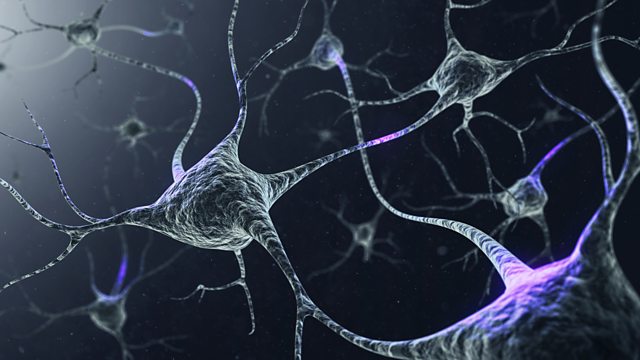Long Covid ‘brain fog’
New insights into cause of Long Covid brain fog. Plus asteroid Bennu, Malaysian farmers helping plant conservation biology, and a new theory explaining the rise of the dinosaurs.
Following a bout of Covid-19, a significant number of people suffer with weeks or months of 'brain fog' - poor concentration, forgetfulness, and confusion. This is one of the manifestations of Long Covid. A team of scientists in the United States has now discovered that infection in the lung can trigger an inflammatory response which then causes patterns of abnormal brain cell activity. It’s the kind of brain cell dysregulation also seen in people who experience cognitive problems following chemotherapy for cancer.
Also in the programme, the latest discoveries about the asteroid Bennu from the Osiris Rex mission, how Malayasian farmers led US researchers to a botanical discovery, and a new explanation for why dinosaurs took over the world 200 million years ago.
Artists can conjure up people, cities, landscapes and entire worlds using just a pencil or a paintbrush. But some of us struggle to draw simple stick figures or a circle that’s actually round. CrowdScience listener Myck is a fine artist from Malawi, and he’s been wondering if there’s something special about his brain that has turned him into an artist. It’s a craft that combines visionary ideas with extraordinary technical skill, but where does that all come from? Do artists have different brains from non-artists? What is it that makes someone a creative person, while others are not? And is artistic ability innate, or is it something you can learn? Presenter Marnie Chesterton goes on a colourful journey into the mind to find out how artistic people see the world differently.
(Image: System of neurons with glowing connections. Credit: Getty Images)
Last on
Broadcasts
- Sat 9 Jul 2022 23:06GMT´óÏó´«Ã½ World Service South Asia & East Asia only
- Sun 10 Jul 2022 00:06GMT´óÏó´«Ã½ World Service except East Asia & South Asia
Podcast
-
![]()
Unexpected Elements
The news you know, the science you don't


